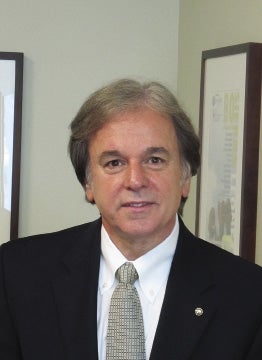Today, 37 percent of local Worcester businesses are owned by foreign-born entrepreneurs, almost double the statewide rate. Foreign-born workers fill critical gaps in the region’s STEM workforce, helping position Worcester for economic success. A new report, commissioned by Seven Hills Foundation, highlights the unique challenges and contributions.
Seven Hills Foundation and its Affiliates employ nearly 3,800 professionals, many of them foreign-born and representing 43 different home countries. That is one of the reasons we wanted to take a more dispassionate and scholarly look at the immigration community’s economic and life experiences.
The report, “The Foreign Born Population in Worcester: Assessing the Challenges and Contributions of a Diverse Community,” was prepared by an interdisciplinary research team from the Public Policy Center (PPC) at UMass Dartmouth in collaboration with the UMass Donahue Institute and was funded by the Fuller, Stoddard and Fletcher foundations.
Worcester is home to 37,970 immigrants from 85 countries, comprising 21 percent of the city’s population, versus 15 percent statewide. Most immigrated after 1990.
They contribute in disproportionately large ways to the economy, as workers, business owners and consumers of local goods and services. They’re more likely than natives to have earned a degree in key STEM fields (science, technology, engineering and mathematics) or health care.
Collectively, foreign-born workers in Worcester earn $947 million annually, representing 26 percent of the nearly $3.7 billion in total earnings citywide. They spent an estimated $472 million in the local economy in 2015, resulting in an estimated $715 million in economic output, $256 million in new labor income, all of which supported an estimated 5,695 jobs in Worcester and its suburbs.
Many foreign born, especially noncitizens, are of prime working age (25-44 years old) and actively participate in the workforce. Economically, naturalized immigrants as a group fare better than both natives and noncitizens, while noncitizens are more likely to be economically disadvantaged than natives or naturalized immigrants.
Many new immigrants face challenges such as securing access to health care, finding affordable housing, and entering the workforce or education systems.
The largest concentrations of foreign-born residents hail from Ghana (10 percent of all foreign born), the Dominican Republic (10 percent), Vietnam (9 percent), Brazil (6 percent) and Albania (5 percent).
Naturalized foreign-born residents have the highest rates of home ownership (53 percent) in Worcester as compared to natives (46 percent) and noncitizens (19 percent). They also have the highest median household income ($50,865) of all groups – measured against native households ($46,263) and noncitizen households ($37,944).
My sincere desire is public officials, students, advocacy and service organizations, and others interested in better understanding the dynamics surrounding Worcester use this report as a source of information and reflection.
Dr. David A. Jordan, DHA is president and CEO, Seven Hills Foundation & Affiliates. He has served in that position since July 1995.

